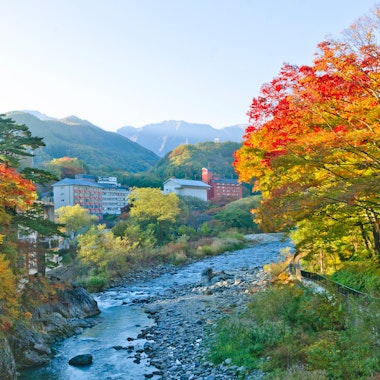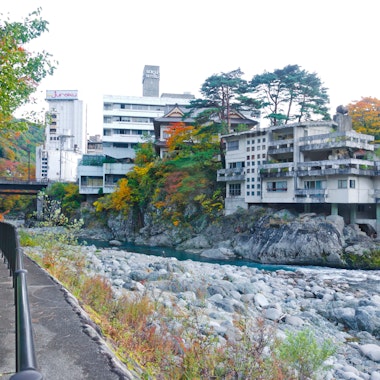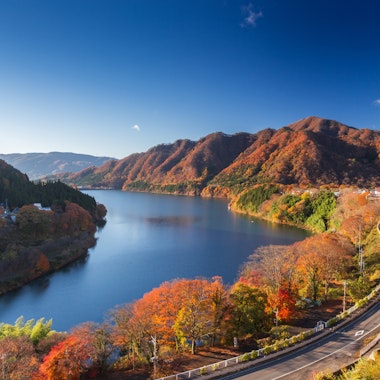


Minakami is a mountainous resort town in northern Gunma Prefecture, located at the source of the Tone River and approximately 150 kilometers northwest of Tokyo. The town's identity centers around water resources, with fast-flowing rivers sourced from the Tone River flowing through the valley of the Tanigawa mountain range. The area contains 18 distinct hot spring sources scattered throughout the municipality, establishing it as one of Japan's prominent onsen destinations. Local folklore attributes the discovery of Sarugakyo Onsen, one of the area's hot springs, to monkeys that allegedly healed a burned child in the thermal waters.
The hot spring landscape ranges from centrally located Minakami Onsen, consisting of numerous large hotel complexes, to isolated rustic ryokan like Takaragawa Onsen and Hoshi Onsen deep in the mountains. Beyond its bathing culture, Minakami has developed into one of Japan's leading outdoor adventure destinations due to its wild rivers, mountains and valleys. The mountainous terrain provides opportunities for activities including whitewater rafting, canyoning, bungee jumping, and canoeing. Most outdoor activities concentrate around Mount Tanigawa, Mount Hotaka and the Tone River. Multiple ski resorts operate in the area during winter months.
Visitors typically combine outdoor pursuits with traditional hot spring experiences at the area's many ryokan and hotels. Tanigawa Onsen occupies an attractive location in a side valley at the mountain foothills, while other hot spring areas offer different atmospheres ranging from developed resort towns to secluded mountain retreats. The surrounding natural environment provides scenic backdrops particularly notable during autumn foliage and winter snow seasons.
From Tokyo Station, the Joetsu Shinkansen reaches Jomo-Kogen Station in approximately 62 to 70 minutes. Local buses connect the shinkansen station to various points within Minakami. Travelers can alternatively reach Minakami by car in approximately 2.5 hours from Tokyo. The journey is covered by several JR rail passes including the JR Tokyo Wide Pass and standard JR Pass. Most hot springs and ryokan charge separate admission or require overnight stays, with prices varying by facility.